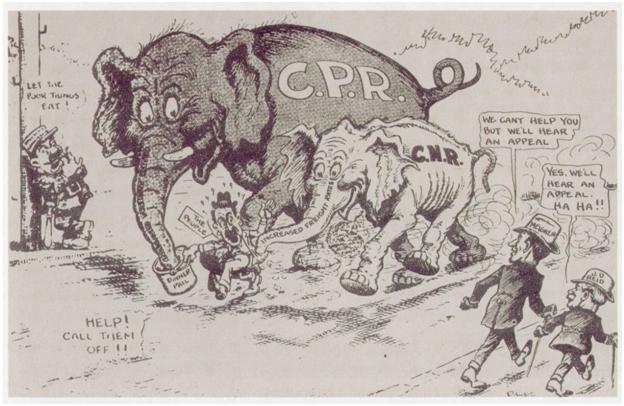(November 22, 2011) In the November 21/11 issue of Macleans magazine there is a business section article about New York hedge fund Pershing Square Capital Management LP announcing that it has taken a 12.2 per cent stake in CP rail. Pershing specializes in taking control of “underperforming” companies.
The article documents how CP with much of its network operating in the cold Canadian environment is seen in eyes of hedge funds like Pershing as a financial underperformer when compared to other North American railroads. Since hedge funds have no sympathy or loyalty to any customer base, this makes CP a great vehicle for extracting more profits.
Grain farmers have done their share of criticizing both foreign-owned railways now operating in Canada for poor performance and high shipping costs. A few years ago our Wheat Board successfully sued CN and CP for poor performance and won over $30 million dollars in damages. Our Wheat Board has also been a critical player representing grain farmers in maintaining a rate cap structure to keep the two railways from exploiting what amounts to their complete control over western Canadian grain shipments.
If Mr. Harper gets his way, all that will be gone and it will be open season on all grain farmers and the sky will be the limit for freight rates. The Macleans article goes on:
“James Nolan, an associate professor of agricultural economics at the University of Saskatchewan, says Pershing could also be positioning itself to take advantage of Ottawa’s proposed dismantling of the Canadian Wheat Board’s monopoly over grain marketing. He says the move to a free market system could also signal the end of Ottawa’s caps on the total amount of revenue CN and CP are allowed to generate by hauling grains regulated by the wheat board. Grain accounted for about $1.1 billion of CP’s nearly $5 billion in 2010 sales, about half of which was regulated grains. Based on the U.S. market, Nolan predicted freight rate increases of anywhere from 25 to 50 per cent if the caps are ultimately removed. ’That’s a chunk of change,’ he says.”
For those thinking that ending the Wheat Board will make shipping cheaper for western farmers, or result in better management of our delivery system, it is time to think again. Without the CWB all farmers will be paying more to move everything from canola to wheat and will no longer have a voice in the system which they pay for and which is critical to their grain sales.


